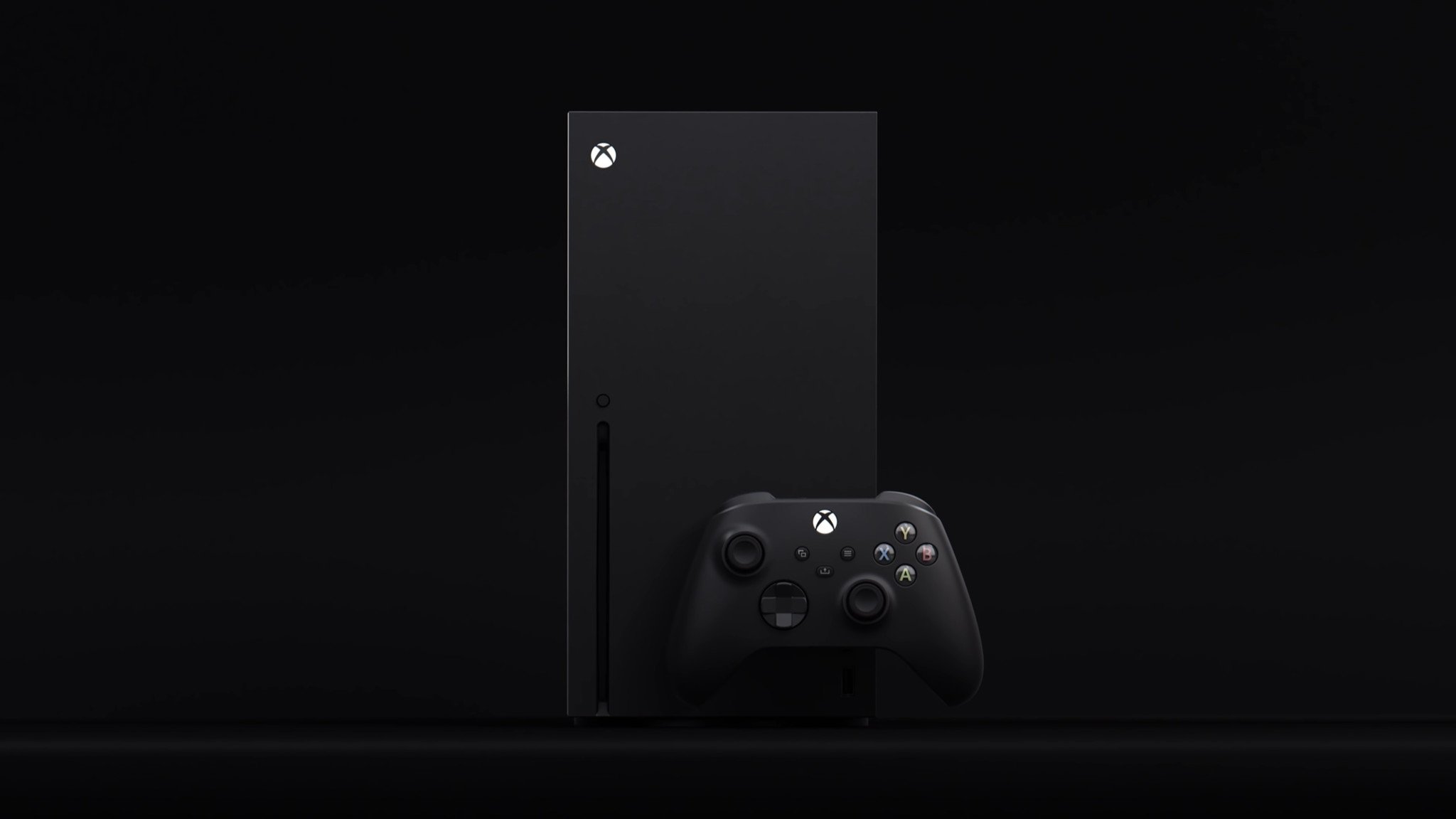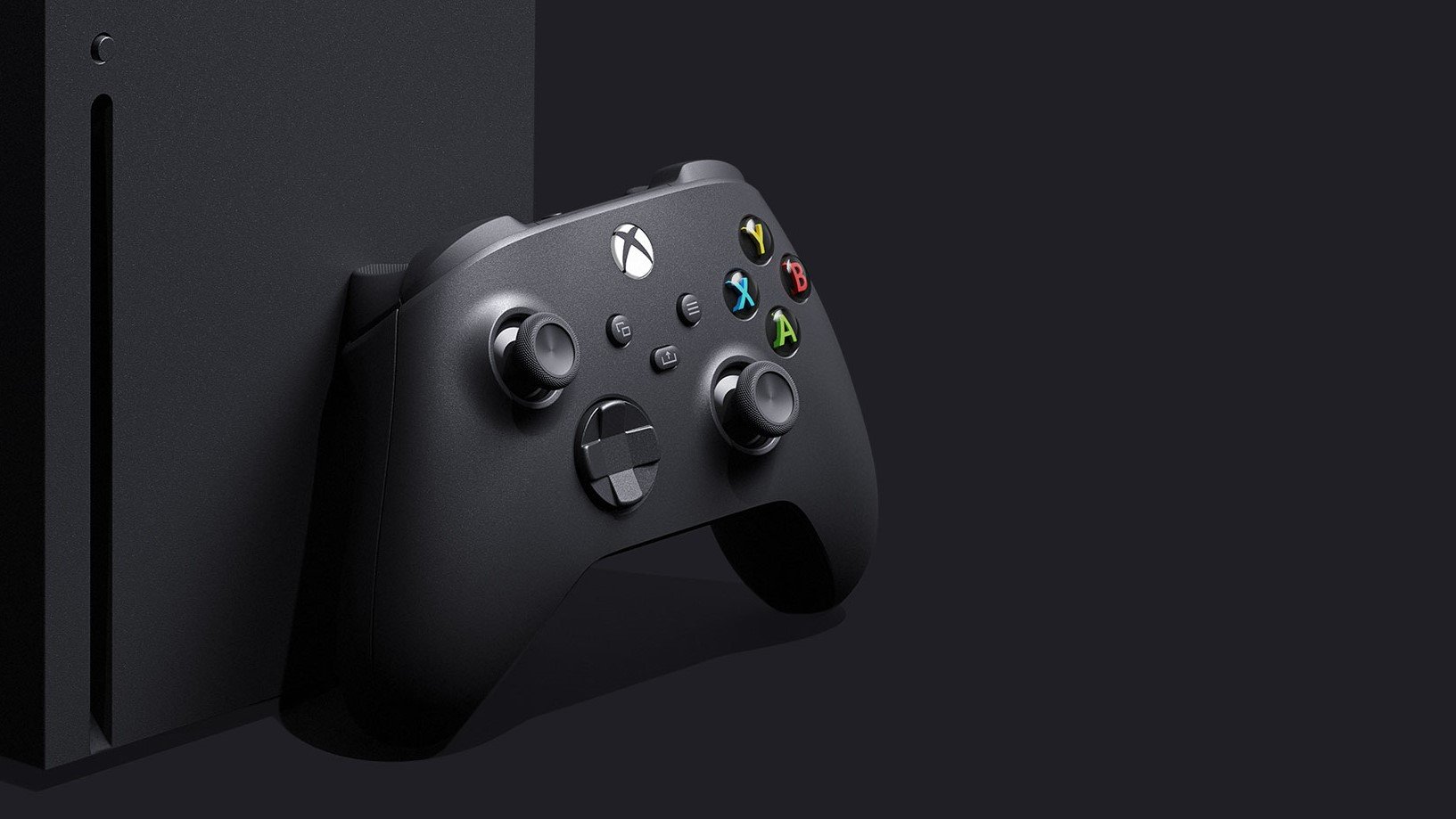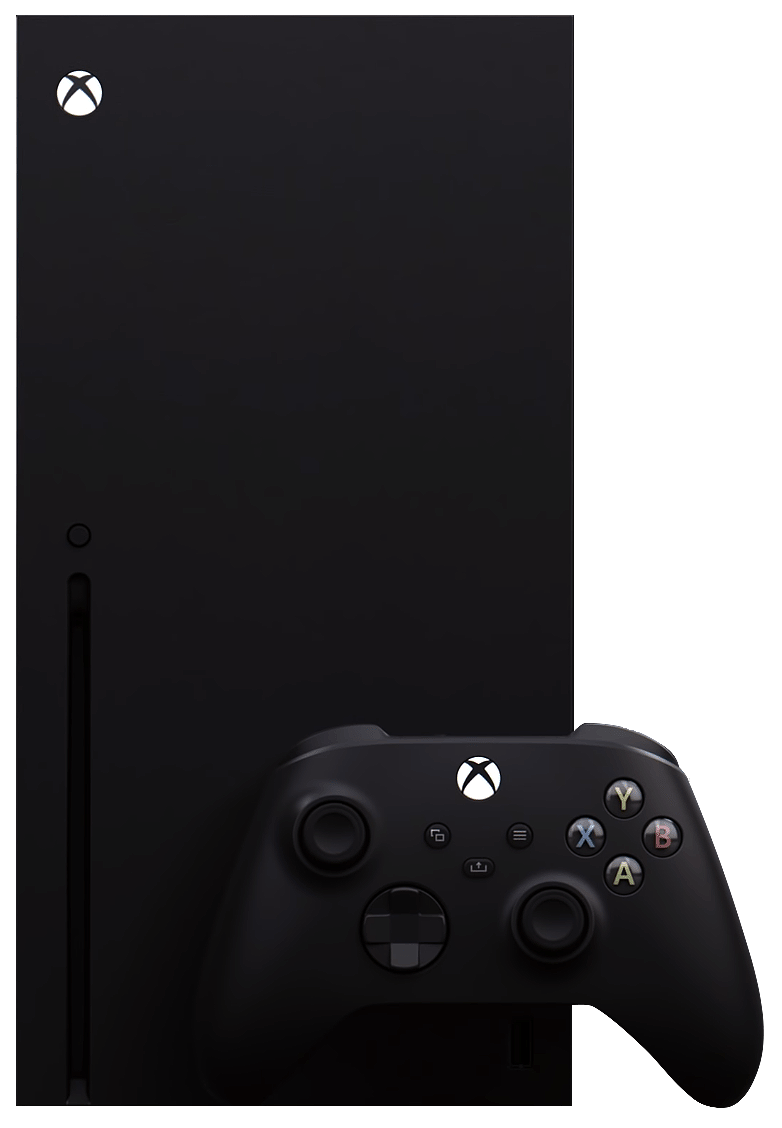With early details on next-generation consoles steadily surfacing, we've wrapped up the latest on Xbox Series X, in relation to PlayStation 5.
Power Your Dreams
Xbox Series X
Microsoft's upcoming Xbox Series X is on track to deliver beastly next-generation hardware, promising "four times" the processing capabilities of Xbox One X, and pacing 12 teraflops (TF) of computing power. Accompanied by storage and memory gains, it aims to streamline next-generation gaming. But with that hardware, what does it mean for the price point?
It's Time to Play
PlayStation 5
While Sony maintains a tight grasp on PlayStation 5 details, early indications suggest sizeable leap over its current console family. Proven to slice loading times, paired with a ton of new system features, it enters the new generation leveraging past success. Early reports might indicate less capable internals, but that price and performance balance could prove alluring.
A game-changing year lies ahead, with two of the world's biggest next-generation consoles expected to hit store shelves in late 2020. While Microsoft has provided the first glimpse of its monolithic Xbox Series X, early PlayStation 5 teasers pitch a compelling upgrade from Sony. We've wrapped up everything we know about the two next-generation titans and how they're stacking up so far.
Xbox Series X vs. PlayStation 5: Features
 Microsoft unveiled the Xbox Series X in December 2019, providing a first glimpse at the monolithic box.
Microsoft unveiled the Xbox Series X in December 2019, providing a first glimpse at the monolithic box.
As expected from any significant console refresh, Microsoft and Sony have focused efforts on delivering flagship performance for their next-generation vision. We expect both consoles to pack custom AMD silicon, based on leading Zen 2 processor architecture, alongside its latest Navi graphics cards. That duo lies at the heart of graphical advancements over Xbox One and PlayStation 4, pushing improved resolutions, frame rates, and overall visual fidelity.
The Xbox Series X and PlayStation 5 aim high, both supposedly capable of up to 8K resolutions or 120 frames-per-second (FPS) outputs. However, it most likely translates to an estimated 4K 60 FPS baseline, pushing the best from modern 4K displays. That helps elevate both consoles above current-generation solutions, with Microsoft specifically touting a "four times" power increase over Xbox One X. The consoles will also feature hardware-accelerated ray tracing via their Navi GPUs, better simulating how light interacts with virtual objects.
 Early PlayStation 5 prototypes cut a 15 second load time in Marvel's Spider-Man (2018) to just 0.8 seconds.
Early PlayStation 5 prototypes cut a 15 second load time in Marvel's Spider-Man (2018) to just 0.8 seconds.
Another next-generation shakeup comes with the adoption of solid-state drives, primarily advancing transfer speeds system-wide. That supports unmatched cuts to loading times, with both platform holders pledging to eliminate the wait between booting a game and entering the action. An exclusive on the PlayStation 5 from Wired highlighted these benefits, cutting 2018's Spider-Man from a PlayStation 4 Pro 15 second load time down to just 0.8 seconds.
Microsoft has discussed similar ambitions, committing to an NVMe SSD and GDDR6 RAM, slicing loading, and increasing multitasking capabilities. Microsoft referenced using its SSD setup as virtual RAM in its reveal video, with up to 40 times the performance of Xbox One storage. While Sony and Microsoft are yet to provide hard benchmarks, expect more details on internals during their full console reveals.
 Xbox One backward compatibility debuted post-launch, now fundamental to Sony and Microsoft in 2020.
Xbox One backward compatibility debuted post-launch, now fundamental to Sony and Microsoft in 2020.
With previous hardware architecture being carried forward to the next consoles, Microsoft and Sony have emerged strong advocates of backward compatibility. While the Xbox One overcame those hurdles post-launch, and Sony attempted to offer past titles through PlayStation Now, both upcoming consoles finally pack native backward compatibility from launch.
For Xbox Series X, the full Xbox One library is assumed, including its vast backward compatible catalog of original Xbox and Xbox 360 games. Microsoft has also pledged that existing Xbox One accessories translate, including controllers and headsets. Sony has expressed similar intentions to bring PlayStation 4 titles to PlayStation 5, with more details expected closer to launch.
 Xbox Series X looks to streamline its operating system, among key criticisms for Xbox One.
Xbox Series X looks to streamline its operating system, among key criticisms for Xbox One.
Sony has also touched on plans to streamline PlayStation 5 accessibility, detailing operating system improvements that accompany the convenience of reduced loading times. Among currently announced features is "a more configurable installation—and removal—process," essentially dividing titles into blocks, and allowing players to download specific components. It primarily sets to reduce download times and save on memory, especially valuable as SSDs become the norm. The Xbox One shipped a similar feature, dubbed "Intelligent Delivery," although we're yet to see wide adoption from developers.
The new PlayStation 5 OS also sets out to remove barriers of smaller tasks, inciting a closer relationship between the user interface and games. "Even though it will be fairly fast to boot games, we don't want the player to have to boot the game, see what's up, boot the game, see what's up," said Mark Cerny, PlayStation lead systems architect, with Wired. That keeps games more connected to the broader PlayStation experience, deeply integrating games into the system.
 The PlayStation 5 brings titles closer to the OS, with more configurable installations, and deeper game integration.
The PlayStation 5 brings titles closer to the OS, with more configurable installations, and deeper game integration.
And while Microsoft has remained more reserved on the OS powering Xbox Series X, it appears to draw foundations from Xbox One. We expect the Xbox Series X to bring forward the shared universal kernel, with improvements to leverage additional hardware overhead. That includes speeding up the infamously sluggish interface and enabling multitasking between multiple titles. The new developer-facing Game Core OS environment also brings improvements, pushing adoption of DirectX 12, and streamlining future Xbox development. The concept will allow games to better scale across consoles of varying capabilities, though real-world results remain unclear.
Xbox Series X vs. PlayStation 5: Specifications
 Microsoft and Sony remain tight on console specifications, with more expected throughout 2020.
Microsoft and Sony remain tight on console specifications, with more expected throughout 2020.
The next-generation leap means all-new power under the hood, with Xbox Series X and PlayStation 5 pushing the limits in late 2020. Custom AMD silicon lies within both devices, promising flagship gaming performance, and elevating their respective console families with new features. But that rides on the final hardware configuration, with preliminary specifications already surfacing.
 The first look at the Xbox Series X system-on-chip (SoC) based on next-gen AMD architecture.
The first look at the Xbox Series X system-on-chip (SoC) based on next-gen AMD architecture.
AMD technologies once again power the next Xbox and PlayStation, with standalone teams sectioned to deliver the brains of future machines. That rides on the new 7nm 8-core Zen 2 processor architecture, flanked by a Navi-based GPU, representing the pinnacle of AMD's recent PC developments at the price point. Microsoft and Sony have also committed to hardware-accelerated ray tracing support, making SSD storage the standard for 2020, alongside GDDR6 memory as RAM.
We've wrapped up the specifications for Xbox Series X and PlayStation 5 so far, from the details provided via official Microsoft and Sony announcements.
| Category | Xbox Series X | PlayStation 5 |
|---|---|---|
| Processor | Custom AMD Zen 2-based CPU; 8x cores; 7nm Zen 2 | Custom AMD Zen 2-based CPU; 8x cores; 7nm Zen 2 |
| Graphics | Custom AMD Navi-based GPU | Custom AMD Navi-based GPU |
| Memory | GDDR6 RAM | Unknown |
| Storage | NVMe SSD | SSD, PCIe 4.0 |
| Video output | 8K, 4K @ 120Hz | 8K, 4K @ 120Hz |
| Optical drive | 4K Blu-ray | 4K Blu-ray |
| Ports | One front-facing USB Type-A; Unknown | Unknown |
| Size | Estimated 30cm x 16cm x 16cm | Unknown |
But while information on upcoming next-generation internals remains hazy, unofficial leaks provide potential insight into the future console landscape.
Our sources suggest Xbox Series X is expected to feature an eight-core Zen 2 CPU targeting 3.6GHz, bolstered by improvements to caching, new silicon architecture, and other proprietary optimizations. That helps Microsoft delivered upon the claimed four times increase over Xbox One X.
That pairs with its Navi GPU pacing 12 teraflops (TF) of computing power, compared to the Xbox One X's 6TF setup. Internal AMD leaks, since reported by Digital Foundry, also suggest the Xbox Series X GPU features 56 custom Navi compute units, approximately at 1700MHz. However, it's worth noting TF performance has significantly improved since Xbox One and PlayStation 4, making for an inaccurate cross-generation benchmark.
 Early leaks indicate Xbox Series X will trump PlayStation 5 performance, but likely not without cost.
Early leaks indicate Xbox Series X will trump PlayStation 5 performance, but likely not without cost.
We also understand the Xbox Series X will feature 16GB of GDDR6 RAM, split across 13GB for games, with 3GB reserved for the OS. The previously confirmed NVMe SSD will support sizeable improvements in loading times, hearing read speeds of anywhere up to 2GB/s according to sources.
But that lays the foundations of one beastly machine, assumedly with a high price tag compared to PlayStation 5. That could necessitate a cheaper, mass-market alternative, potentially via the rumored low-tier next-generation Xbox Lockhart, which supposedly remains in development.
The few PlayStation 5 specifications indicate a system balancing performance against price, with the aforementioned AMD leak suggesting a 9.2TF GPU, featuring 36 custom Navi compute units at 2.0GHz. Reports indicate early Navi tests reference three modes, two aligning with PlayStation 4 and PlayStation 4 Pro specifications, and indicative of hardware-level backward compatibility. We also understand the PlayStation 5 features GDDR6 memory at 448GB/s, though with capacity still undisclosed.
Xbox Series X Controller vs. PlayStation DualShock 5
 Microsoft builds upon the Xbox One controller, now with added functionality for Xbox Series X.
Microsoft builds upon the Xbox One controller, now with added functionality for Xbox Series X.
Microsoft unveiled Xbox Series X alongside the latest revision of its controller, building upon the proven Xbox One design with further enhancements. While yet to outline planned specifications, official renders highlight several learnings across the past generation.
The signature addition is a new dedicated "Share" button, mimicking the feature popularized by the PlayStation 4's DualShock and the Nintendo Switch. The key enables fast video and screenshot capture and sharing, building upon the Game DVR from Xbox One.
That pairs with a new hybrid D-Pad inspired by the Xbox Elite Series 2 Wireless Controller, circular-shaped with five defined square surfaces. And if you look closely, textured trigger grips come standard, after trailing the concept across limited-edition designs.
Speaking with Xbox leadership, GameSpot also reports an "ever-so-slightly smaller" controller silhouette planned for Xbox Series X, in response to user research. While a subtle change in reveal assets, Microsoft hopes to nail down ergonomics across the broadest range of Xbox buyers. The proprietary Xbox Wireless protocol also returns, extending efforts to reduce input latency.
But despite the familiar appearance of the Xbox Series X controller, we still have unanswered questions. It's unclear if other features of the Xbox Elite Series 2 Wireless Controller, such as USB Type-C and internal batteries, will become the norm. Expect more on the latest controller alongside the full reveal of next-generation plans.
 The next PlayStation controller, assumedly named DualShock 5, introduces new advances in haptics.
The next PlayStation controller, assumedly named DualShock 5, introduces new advances in haptics.
The PlayStation 5 is also assumed to include the latest DualShock 5 controller, expanding Sony's in-house controller family with a fifth major revision. While the new and improved PlayStation gamepad is yet to be pictured, Sony has provided a generous helping of planned specifications through interviews with Wired.
Among fundamental improvements of the DualShock 5 is the addition of "adaptive triggers," accommodating variable levels of trigger resistance in-line with gameplay. The triggers will provide feedback around tailored scenarios, emulating the tension of arrow drawstring, or differentiating firearm classes. It accompanies those with improved haptics, advancing its rumble motors with highly programmable voice-coil actuators in either grip. That's poised to deliver an overall more responsive setup than Xbox One, which first experimented with impulse triggers and directional haptics back in 2013.
Sony has also touched on other improvements in the pipeline, including a shift to USB Type-C for wired connectivity and charging. The integrated speaker also returns with improved clarity, paired with a larger capacity internal battery. The result is slightly heavier than today's DualShock 4 but reportedly comes in below the Xbox One gamepad with batteries inserted. A previously-filed patent also suggests the removal of the light bar, notorious for draining the DualShock 4 battery, although yet to be confirmed.
With backward compatibility with existing purchases a hot topic for next-generation consoles, it also appears the DualShock 5 may retain compatibility with PlayStation 4 and PlayStation 4 Pro. A now-removed PlayStation 5 FAQ indicates those on current hardware can leverage the upcoming DualShock 4, likely bringing some benefits for those cross-generation titles.
Xbox Series X vs. PlayStation 5: Games
 Like its predecessor, The Last of Us: Part II likely launches as a cross-generation title on PlayStation 5.
Like its predecessor, The Last of Us: Part II likely launches as a cross-generation title on PlayStation 5.
With Xbox One and PlayStation 4 entering their final months in the spotlight, the value of a compelling game lineup has never been more evident. Microsoft enters the next generation wrapping a multi-studio acquisition spree, expanding its Xbox Game Studios output. And for Sony Interactive Entertainment Worldwide Studios, the creative collection has a lineup of varied projects on the 2020 roadmap.
Halo Infinite is among confirmed Xbox Series X launch games, scheduled to hit the next-generation console alongside Xbox One and PC. Senua's Saga: Hellblade 2 also saw its debut at The Game Awards 2019, confirmed among first-party titles for Xbox Series X. And with Turn 10 Studios having skipped the annual Forza release, it's safe to assume Forza Motorsport 8 is soon ready for prime time. Other Xbox Game Studios projects remain in the early stages of development, including Everwild and Playground Games' new RPG.
While Sony is yet to discuss future PlayStation 5 titles, upcoming action-RPG Godfall is among the first console exclusives confirmed for 2020. Bluepoint Games, famed for remakes of Shadow of the Colossus, Gravity Rush, and Uncharted also have a PlayStation 5 project brewing. And previously announced PlayStation 4 titles from Sony, The Last of Us: Part II and Ghost of Tsushima, are also prime candidates for cross-generation upgrades.
Both Xbox Series X and PlayStation 5 will also undoubtedly benefit from third-party titles on the calendar for 2020, including Cyberpunk 2077, Watch Dogs: Legion, and more.


